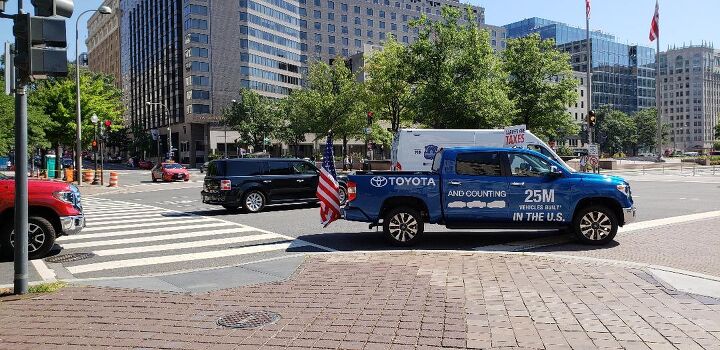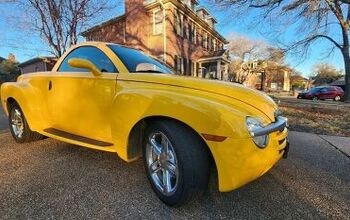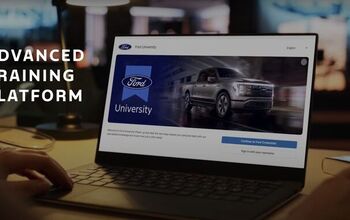Trade War Watch: As Commerce Secretary Ponders Auto Tariffs During D.C. Hearing, Automakers Call Out the Troops

As the United States considers imposing new tariffs of up to 25 percent on imported automobiles and parts, the industry has rallied together to stand against the proposal. Manufacturers already made individual cases for themselves and are now dropping very bleak-sounding industry projections on the U.S. Commerce Department in the hopes of changing the administration’s mind.
However, President Donald Trump continues to promote the imposition of tariffs to force a sort of economic justice. For years, China’s protectionist policies regarding automobiles forced American manufacturers to build inside its borders and partner with Chinese firms for years. That’s something Trump claims could be a national security risk. China also recently upped its tax on American-made autos to 40 percent, shortly after promising to lower them. Meanwhile, Europe still holds a consistently higher tariffs on imported cars than the U.S., except for light trucks.
Commerce Secretary Wilbur Ross seems aware that China may have gamed the system in its favor, but appears less convinced that it’s a matter of national security. On Thursday, during a hearing on the probe into the industry, he said it was “too early” to say what the United States would do. Meanwhile, auto groups continue to make their terrifying case. (There’s also quite a bit of rolling PR in downtown D.C. today, as you’ll see below.)
After creating a major advantage for itself in terms of manufacturing, China wants to expand its automotive industry as quickly as possible. New import tariffs could help keep Chinese automakers out of North America and strongarm Europe into lowering its own taxes on U.S. vehicles if a deal can be negotiated. The taxes could also force outside manufacturers to set up shop within America’s borders, which is what happened in China — assuming the threat alone doesn’t bully other countries into playing ball.
“We said if we don’t negotiate something fair, then we have tremendous retribution, which we don’t want to use, but we have tremendous powers,” Trump said on Wednesday. “We have to — including cars. Cars is the big one. And you know what we’re talking about with respect to cars and tariffs on cars.”
However, auto groups tell the Commerce Department that the taxes would effectively cripple the industry. According to Reuters, a group representing major automakers told the department on Thursday that imposing tariffs of 25 percent on imported cars and parts would raise the price of U.S. vehicles by $83 billion annually and cost hundreds of thousands of jobs.
“Higher auto tariffs will harm American families and workers, along with the economy” and “would raise the price of an imported car nearly $6,000 and the price of a U.S.-built car $2,000,” said Jennifer Thomas, vice president for the Alliance of Automobile Manufacturers.
She also mentioned that the United States exports more than $100 billion worth of vehicles and auto parts to other countries every year. Retaliatory fees from other nations could put a serious dent in that number, if they haven’t already.
Another study, released by an dealer group, stated that the tariffs could reduce domestic auto sales by 2 million vehicles annually and cost more than 117,000 auto dealer jobs, or about 10 percent of the total workforce.
Jennifer Kelly, research director for the United Auto Workers union, told the Commerce Department that U.S. auto production has fallen from 12.8 million vehicles in 2000 to 11.2 million in 2017. The industry scaled back roughly 400,000 jobs during that time. “We caution that any rash actions could have unforeseen consequences, including mass layoffs for American workers, but that does not mean we should do nothing,” she said. The UAW seeks a “targeted approach” to the problem.
It’s worth mentioning that these estimates come from an industry that’s very fearful of change and wants to protect its bottom line. Make no mistake, the risks of this are very real. However, similar protectionist tactics in China have worked in its favor.
Would they work in the United States and function to solidify investments and jobs? Nobody really knows. The industry’s projections are incredibly negative, but they’re just projections that examine a worst-case scenario — nobody has a crystal ball. That doesn’t make the tariff threat anything more than a big gamble, though. Everyone was hungry to get into the Chinese market to sell vehicles a few years ago but, for the most part, America has been settled.
Instead of forcing new investments and securing jobs, these tariffs could seriously upset the balance. The United States isn’t a new market and, at this point, neither is China. Whatever national security risks the current administration sees in terms of automobiles, may be too far gone to be relevant.
While the Commerce Department’s public hearing continues until the end of the day, the investigation has been ongoing since May. Ross said it will continue trying to determine “whether government action is required to assure the viability of U.S. domestic production.” A final decision should be made within a couple of months.
[Images: ‘master blaster’]

A staunch consumer advocate tracking industry trends and regulation. Before joining TTAC, Matt spent a decade working for marketing and research firms based in NYC. Clients included several of the world’s largest automakers, global tire brands, and aftermarket part suppliers. Dissatisfied with the corporate world and resentful of having to wear suits everyday, he pivoted to writing about cars. Since then, that man has become an ardent supporter of the right-to-repair movement, been interviewed on the auto industry by national radio broadcasts, driven more rental cars than anyone ever should, participated in amateur rallying events, and received the requisite minimum training as sanctioned by the SCCA. Handy with a wrench, Matt grew up surrounded by Detroit auto workers and managed to get a pizza delivery job before he was legally eligible. He later found himself driving box trucks through Manhattan, guaranteeing future sympathy for actual truckers. He continues to conduct research pertaining to the automotive sector as an independent contractor and has since moved back to his native Michigan, closer to where the cars are born. A contrarian, Matt claims to prefer understeer — stating that front and all-wheel drive vehicles cater best to his driving style.
More by Matt Posky
Latest Car Reviews
Read moreLatest Product Reviews
Read moreRecent Comments
- Corey Lewis It's not competitive against others in the class, as my review discussed. https://www.thetruthaboutcars.com/cars/chevrolet/rental-review-the-2023-chevrolet-malibu-last-domestic-midsize-standing-44502760
- Turbo Is Black Magic My wife had one of these back in 06, did a ton of work to it… supercharger, full exhaust, full suspension.. it was a blast to drive even though it was still hilariously slow. Great for drive in nights, open the hatch fold the seats flat and just relax.Also this thing is a great example of how far we have come in crash safety even since just 2005… go look at these old crash tests now and I cringe at what a modern electric tank would do to this thing.
- MaintenanceCosts Whenever the topic of the xB comes up…Me: "The style is fun. The combination of the box shape and the aggressive detailing is very JDM."Wife: "Those are ghetto."Me: "They're smaller than a Corolla outside and have the space of a RAV4 inside."Wife: "Those are ghetto."Me: "They're kind of fun to drive with a stick."Wife: "Those are ghetto."It's one of a few cars (including its fellow box, the Ford Flex) on which we will just never see eye to eye.
- Oberkanone The alternative is a more expensive SUV. Yes, it will be missed.
- Ajla I did like this one.






































Comments
Join the conversation
"For years, China’s protectionist policies regarding automobiles forced American manufacturers to build inside its borders and partner with Chinese firms for years." I'm not sure that anyone was "forced" to build cars in China. They were economic decisions by the carmakers. They agreed to China's egregious terms.
These protectionist measures should have been done a quarter century ago. It is now probably too late to do anything about it. Detroit has hallowed out a significant portion of their design and engineering long ago. What Trump can do is save industries that are in trouble now. Right now because of NAFTA Canada has basically taken over the animation and special effects industry. A lot of those mindless superhero films that seem to fill Cineplex’s are made in Toronto, Montreal, and London. The last time a US based special company won an Oscar was in 2013 for Life of PI. After winning the Oscar for Life of PI the entire special effects staff of Rhythm and Hues jobs were outsourced to a foreign studio. This ordeal is covered in a documentary entitled Life or PI. The sad fact is the US is losing its ability to entertain the world, and if things don’t change Hollywood will become an industrial ghost town like Flint Michigan. Hollywood has pretty much become just a business center were deals are made, while the actual film production takes place else were. Other industries currently in trouble in the US are robotic and machine tool producers. These two industries are vital to any industrial economy. Even though the US continues to have a leadership role in robot research just about every robot in an US assembly line is produced in either Asia or Europe. Even Tesla has pretty much become reliant on a German robotics company for its manufacturing. Maybe the reason Trump is harping on the auto industry is because he knows it is easy for the public to grasp. Let’s be honest most America have little knowledge or interest in the robotics industry. The truth is since NAFTA was initiated the US auto industry has just lost too much auto parts production for it to be completely self-sufficient.